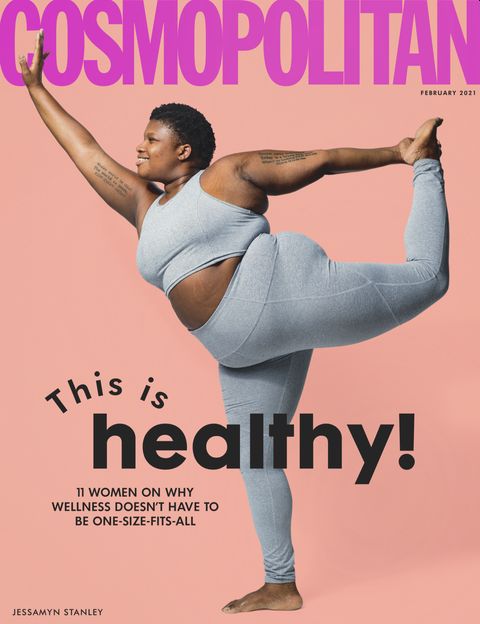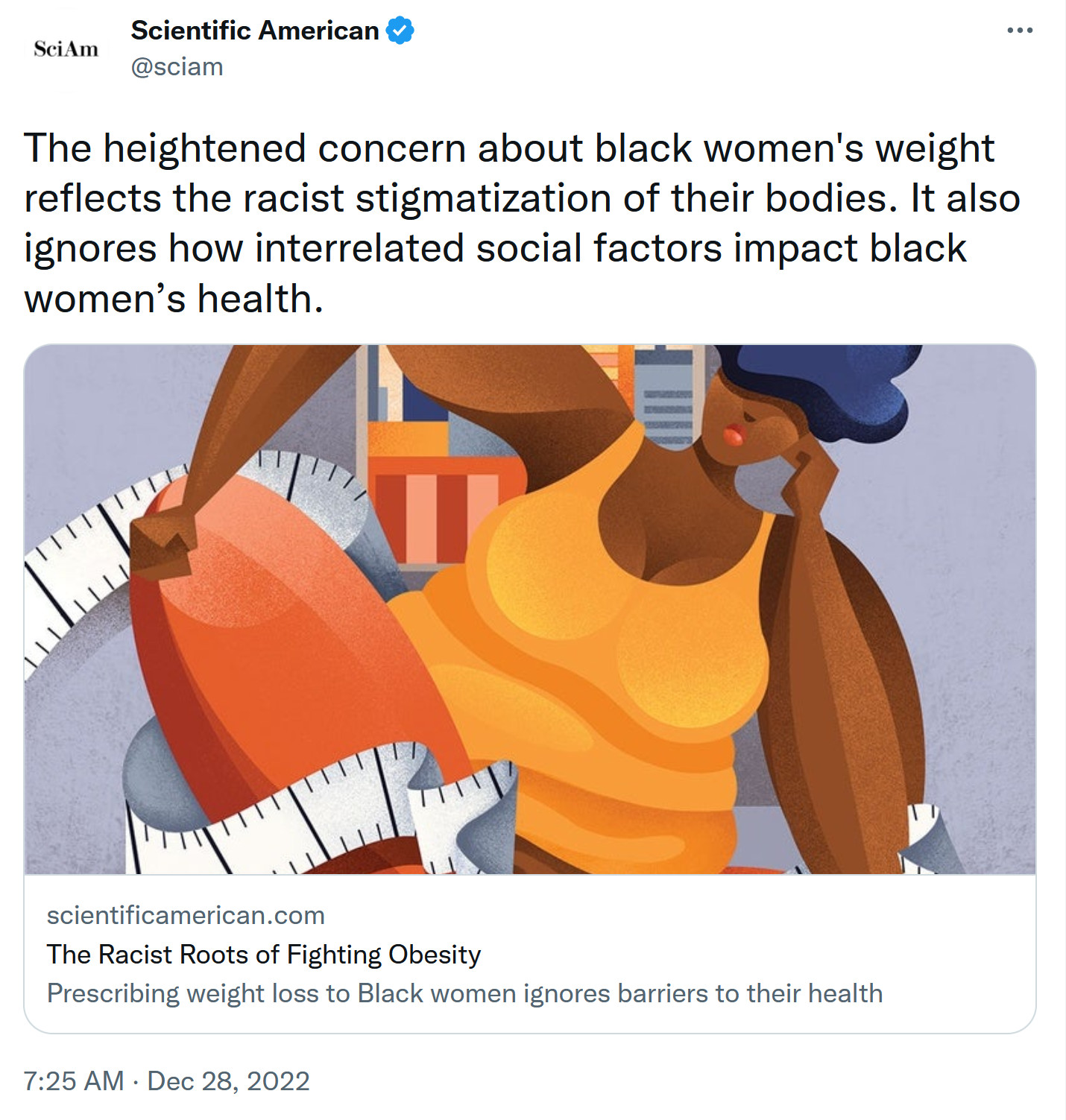PAST PERFORMANCE IS NO GUARANTEE OF FUTURE RESULTS: Scientific American looks at the racist stigmatization of black women’s bodies and obesity.

So we already know which graphic we’re going to use with this post … the shot from Cosmopolitan declaring “This is healthy!” as an obese black woman holds a yoga pose. We specify black women because the fight against obesity has racist roots, according to Scientific American, which is one of those magazines that used to have some credibility. Who’s stigmatizing black women’s bodies, anyway? It hasn’t cost Lizzo her share of fame and fortune.
It turns out this was published in 2020, but Scientific American thought they’d tweet it out again. Sabrina Strings and Lindo Bacon explain that “prescribing weight loss to black women ignores barriers to their health.”
Black women have also been identified as the subgroup with the highest body mass index (BMI) in the U.S., with four out of five classified as either “overweight” or “obese.” Many doctors have claimed that Black women’s “excess” weight is the main cause of their poor health outcomes, often without fully testing or diagnosing them. While there has been a massive public health campaign urging fat people to eat right, eat less and lose weight, Black women have been specifically targeted.
This heightened concern about their weight is not new; it reflects the racist stigmatization of Black women’s bodies. Nearly three centuries ago scientists studying race argued that African women were especially likely to reach dimensions that the typical European might scorn. The men of Africa were said to like their women robust, and the European press featured tales of cultural events loosely described as festivals intended to fatten African women to the desired, “unwieldy” size.
Strings has also published a book entitled, “Fearing the Black Body: The Racial Origins of Fat Phobia,” if you want to know more.
It’s a curious choice for a topic in 2020 or 2022, considering that last year, Scientific American explored: Why Are People with Obesity More Vulnerable to COVID?
Related: Obesity may reduce effectiveness of COVID-19 vaccines.
More: We Need to Stop Overlooking One Politically Incorrect COVID-19 Death Factor:
The United States has the 13th highest COVID-19 death rate relative to population. Many different factors shaped death rates in the pandemic. But there’s one uncomfortable reason that the U.S. likely experienced more COVID-19 deaths that has largely been ignored because it’s politically incorrect.
Out-of-control obesity rates and the “body positivity” movement predating the pandemic have left the U.S. population disproportionately vulnerable to COVID-19 compared to other countries. The U.S. ranks No. 12 in obesity worldwide, one of the highest rates among developed countries. One study found that 90% of worldwide COVID-19 deaths occurred in countries with high obesity rates.
Bill Maher concurs:

